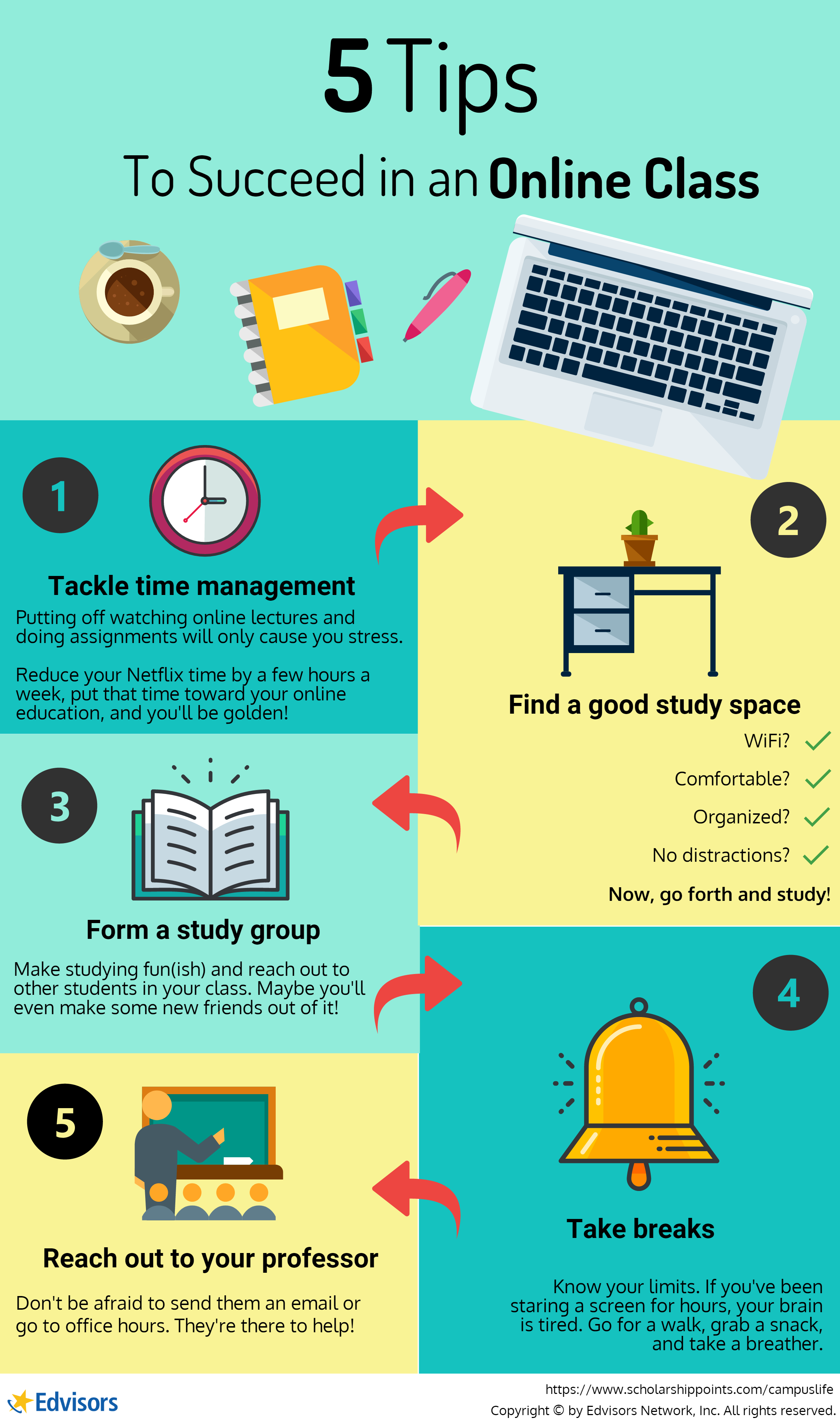Distance Learning Tips
Distance learning can be difficult! It’s significantly different from learning in person. Here are some tips for how to succeed while studying from home.
Distance Learning Tips
Try to follow your “normal” routine as much as possible. Get up at the same time, get dressed in school clothes, exercise the same amount, etc.
Turn off unnecessary technology during class. If possible, keep your phone, tv, and tablet out of your study space.
Follow virtual classroom etiquette. Mute your microphone unless you are the one speaking. Use the chat function appropriately. Be sure your background isn’t distracting. Make sure you are appropriately centered in the frame.
Actively engage in your classes. Speak up, participate, and use the chat function.
Be sure to take active breaks. In between classes and while you’re studying, walk around your house or take a short walk outside. Give your eyes a break from looking at a screen all day.
Creating Your Study Space
Pick one place you like. Your brain will catch on and enter “study mode” upon entering the space.
Be comfortable, but not too comfortable. Try changing out of your pajamas to let yourself know that this is study time, not lounge time.
Look for natural light. Humans love natural light, and it can really make or break a study space. However, light directly shining in your eyes can be distracting.
Remove all distractions including video games, messy food, and your phone. Close unnecessary tabs you have open on your browser.
Keep a cup or bottle of water on your desk. Remember to stay hydrated throughout the day!
Do not study in bed. Your bed is too comfortable and is for sleeping! It limits focus, decreases productivity, and makes going to sleep more difficult.
Buy a couple low-maintenance plants to brighten up your space.
Consider Studying Outside
It’s best to join online classes indoors, but consider studying and doing homework outside.
Studying outside can provide the neurological responses needed to retain new information better. Even a short walk or few minutes outside can help reset you.
Being outside can increase your ability to pay attention.
Time outside can boost your brain health by increasing vital blood flow to the brain, according to science.
Study Tips
Communicate to your family that you will be studying, whether it is a set time or block of time each day.
Turn your phone off or turn on airplane mode. Getting notifications can be very distracting and tempting.
Replace music for instrumental music, like classical, ambience noise, lo-fi, or jazz. Music with lyrics can be really distracting.
Set study times, and follow them. Focus during your chosen study times.
Take short breaks and reward yourself when you accomplish something substantial. This will reinforce good study habits.
Set realistic goals, and plan how you will achieve those goals. Be sure your study plan is achievable. For more information about setting goals, visit our time management page.
Visit our organization and study tips page for more helpful information!
Create an Online Study Group
Studying in a group allows group members to share their valuable skill sets while making learning more fun. Follow these tips if you’re thinking of starting your own group.
Set goals. Identify what the group wants to achieve.
Decide what platform you will use and how often you will meet.
Set rules. Limit off-topic chats or posts. Decide how you will use your time.
Decide how many members you’d like in your group. Typically, a group has 6-8 members. Too many can be counterproductive.
Set an agenda so all members are on the same page.
Identify a moderator. It can be helpful to have one person leading discussions and organizing materials.
Communication is key. Be sure to check in with each other periodically. Evaluate how efficient and productive the group is. Are any adjustments needed?












